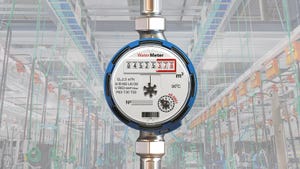AI’s Power Needs Not as Bad as Feared, Princeton Professor SaysAI’s Power Needs Not as Bad as Feared, Princeton Professor Says
His comments come as power grids and utilities brace for a potential surge of new demand that threatens to slow the fight against climate change.
April 5, 2024

(Bloomberg) -- Artificial intelligence and the data centers behind it won’t place nearly as much stress on electric grids as feared, according to Princeton University assistant professor Jesse Jenkins.
“It’s not a crisis,” Jenkins said at a Society of Environmental Journalists event on the Princeton campus Thursday.
His comments came as power grids and utilities brace for a potential surge of new demand that threatens to slow the fight against climate change. Demand for electricity in the US has remained flat for years, but that has started to change as electric cars become more common and data centers proliferate.
Increased demand from EVs was widely anticipated among electric utilities, but the need to power AI was not. A major spike in electricity demand would complicate the drive to cut carbon emissions, keeping gas- or coal-fired power plants running longer than they otherwise would.
Jenkins, who models ways to decarbonize, said that data centers could boost the annual growth in power demand to four times its recent average. While that may sound like a lot, growth has only averaged .04% per year, he said. In contrast, electricity demand in the US grew an average of 2.3% per year from 1980 through 2005, he said.
“So we’re a long way from getting back to the pace of growth that we saw in that era,” Jenkins told reporters.
Earlier Thursday, the co-founder of cloud-computing giant CoreWeave told a Bloomberg Intelligence summit in New York that the world is “grossly” underestimating how much artificial intelligence will increase the demand for more data centers in the next five years, stressing power grids.
About the Author
You May Also Like









